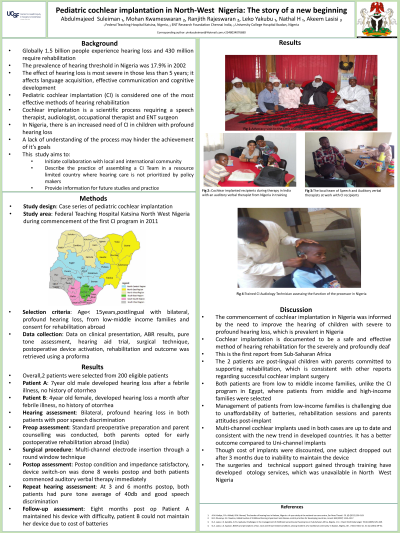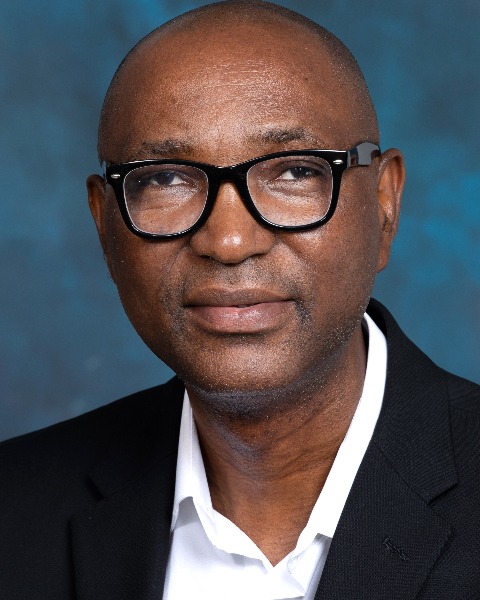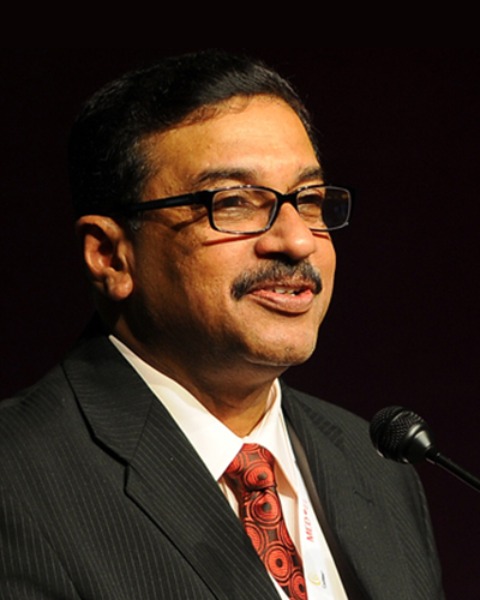Otology/Neurotology
(0954) Pediatric Cochlear Implantation in North-West Nigeria: The Story of a New Beginning
Monday, September 30, 2024
12:00 PM - 1:00 PM EDT

Has Audio
Disclosure(s):
Abdulmajeed Olayinka Suleiman, MD: No relevant relationships to disclose.
This paper is aim at telling our story and provide information, describing the process, challenges, barriers, successes, and role of stakeholders and policy makers and most importantly local and international collaboration in the commencement of pediatric cochlear implantation in Katsina, Nigeria.
This will describe the process of initiation of pediatric cochlear implantation in a resource limited environment. The lead ENT surgeon was able to initiate the commencement of surgery through international collaboration and collaborating with community, parents, and policy makers. We assembled our CI team involving training of surgeon, an auditory verbal therapist, and cochlear implant audiology technician and speech therapist while the first implanted kids had part of their rehabilitation in same training institution during same period. We describe the outcome of the first two pediatric cochlear-implanted kids in northwest Nigeria, our major challenges, and successes including the plans and recommendation.

Abdulmajeed Olayinka Suleiman, MD
Dr
Federal Teaching Hospital Katsina
Katsina, Katsina, Nigeria
Mohan Kameswaran, DSc, MS, FRCS (Ed)
Prof
Madras ENT Research Foundation Pvt Ltd
Chennai, Tamil Nadu, India- AL
- HL
- NN
- RR
